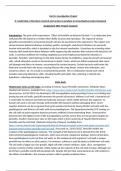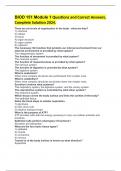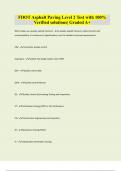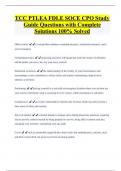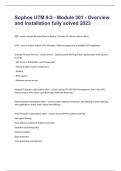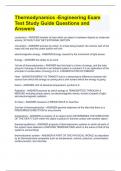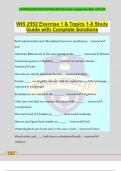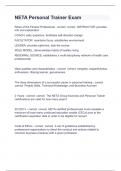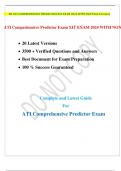Psychology BSc Year 1
TABLE OF CONTENTS
Defining Key Research Terms .............................................................................. 3
Testing theories .......................................................................................................... 3
Introduction .................................................................................................................................3
Results ........................................................................................................................................3
Discussion ...................................................................................................................................4
Core research Principles and concepts........................................................................ 4
Systematic Empiricism .................................................................................................................4
Parsimony....................................................................................................................................4
Essentialism ................................................................................................................................4
Theory-Driven Research vs Direct Applications ..............................................................................4
Falsification and Replication ....................................................................................... 5
Replication ..................................................................................................................................5
Falsification .................................................................................................................................5
Assessing the Explanatory Power of Different Theories ...................................................................5
Experimental Design and Measuring Behaviour .................................................... 5
Variables .................................................................................................................... 5
Types of Variables ........................................................................................................................6
Operationalism ........................................................................................................... 6
Experiments ............................................................................................................... 6
Cause-and-Effect Relationships ...................................................................................................6
Research designs ....................................................................................................... 7
Experimental Designs ...................................................................................................................7
Non-Experimental Designs ...........................................................................................................7
Quasi-Experimental Designs .........................................................................................................7
Non-equivalent Group Designs (between-subjects) .......................................................................7
Pre-Post Designs (within-subjects) ................................................................................................8
Types of Data .............................................................................................................. 8
Reliability, Validity and control ............................................................................ 9
Converging Evidence ....................................................................................................................9
Scientific Consensus ....................................................................................................................9
Measuring variables .................................................................................................... 9
Reliability of Measurement ...........................................................................................................9
Validity of Measurement ...............................................................................................................9
Internal validity ......................................................................................................... 10
Random Sample vs Random Assignment..................................................................................... 10
Counterbalancing (Full or Partial) ................................................................................................ 11
Between-Subjects Design ........................................................................................................... 11
Within-Subjects Design .............................................................................................................. 12
Between- and Within-Subjects Designs ....................................................................................... 12
Non-Experimental Designs ......................................................................................................... 13
Quasi-Experimental Designs ....................................................................................................... 13
External Validity........................................................................................................ 14
1
, 4PAHPRM1 Research Methods 1&2 Research Principles
Psychology BSc Year 1
Report Writing ................................................................................................... 15
Main Section Headings and Their Purpose ................................................................................... 15
Introduction ............................................................................................................. 15
Background Information ............................................................................................................. 15
Review of Relevant Literature ...................................................................................................... 15
Identify Gaps or Limitations in the Literature ................................................................................ 16
Introduce the Research Question and Hypothesis ....................................................................... 16
Methods ................................................................................................................... 16
Participants ............................................................................................................................... 16
Materials.................................................................................................................................... 16
Procedure .................................................................................................................................. 16
Design ....................................................................................................................................... 16
Ethical Considerations ............................................................................................................... 16
Results ..................................................................................................................... 16
Descriptive Statistics.................................................................................................................. 16
Inferential Statistics ................................................................................................................... 16
Figures and Tables ..................................................................................................................... 17
Avoid Interpretation .................................................................................................................... 17
Research ethics ................................................................................................ 17
Ethical Issues ........................................................................................................... 17
Psychological Harm ................................................................................................................... 17
Data Security and Anonymity ...................................................................................................... 17
Religious and Financial Considerations ....................................................................................... 17
Physical Harm ............................................................................................................................ 17
Informed Consent and Accessibility ............................................................................................ 18
Deception .................................................................................................................................. 18
Working with Vulnerable Populations (e.g., Children) ................................................................... 18
Competence of Researchers ...................................................................................................... 18
Ethical Data Collection and Use .................................................................................................. 18
Open Science and Data Sharing .................................................................................................. 19
KCL research ethics committee risk levels................................................................. 19
Questionable Research Practices .............................................................................. 20
Excessive Flexibility in Data Collection ........................................................................................ 20
Incomplete Reporting of Methods ............................................................................................... 20
Excessive Flexibility in Data Analysis ........................................................................................... 20
Incomplete Reporting of Data Analysis ........................................................................................ 21
Hypothesizing After Results are Known (HARK-ing) ...................................................................... 21
Fraud—Scientific Misconduct ..................................................................................................... 22
Pre-Registration of research ...................................................................................... 22
Pre-Registration Example Questions (aspredicted.org) ................................................................ 22
REFERENCES .................................................................................................... 23
2


